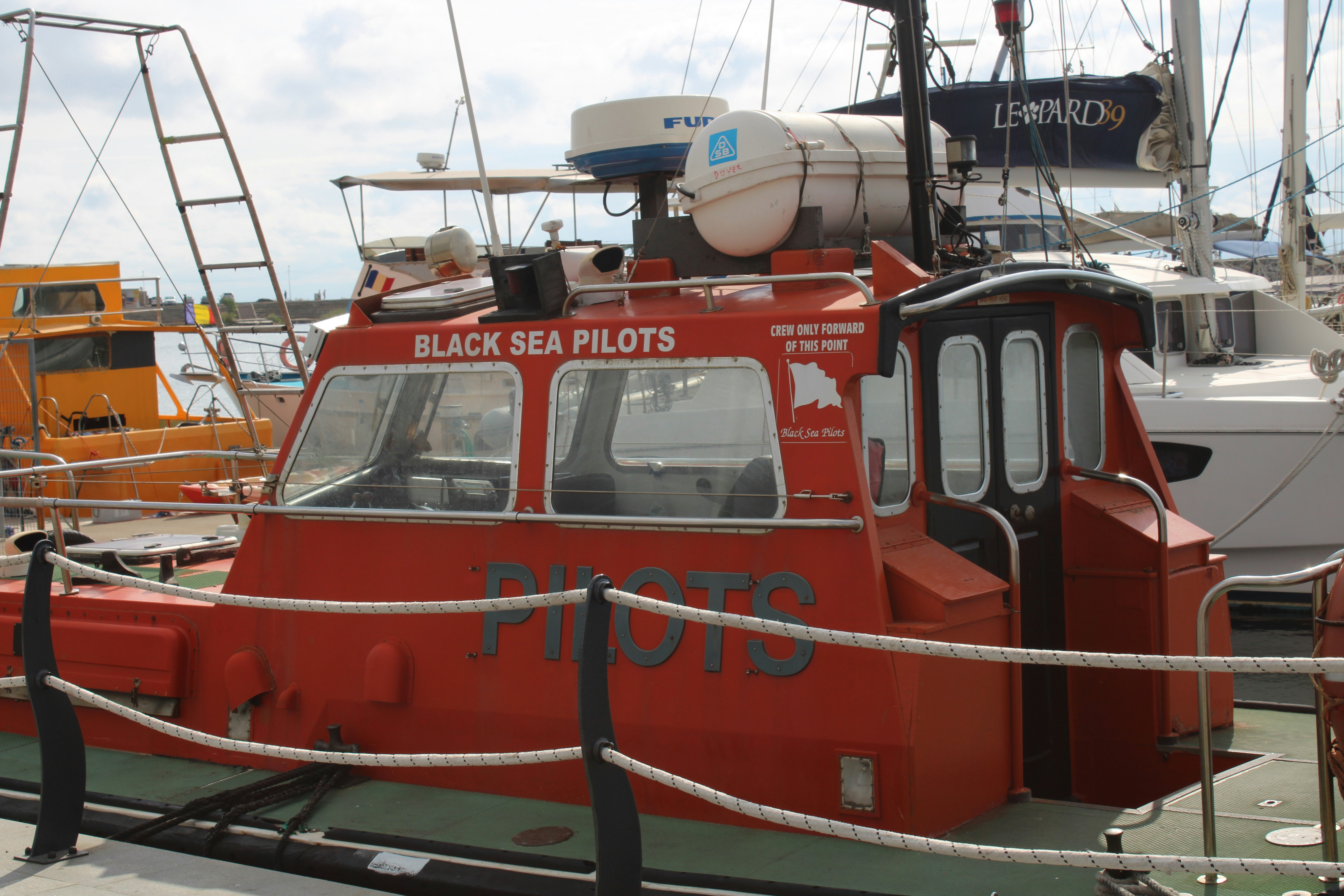
Introduction to the Current Situation in Ukraine
The ongoing conflict in Ukraine, ignited by geopolitical tensions since 2014, has evolved significantly, particularly with regard to the strategic importance of the Black Sea region. This body of water has emerged as a focal point of both military and economic interests, drawing the attention of various global powers. The annexation of Crimea by Russia propelled the crisis, altering territorial dynamics and creating a persistent state of conflict that encompasses military skirmishes, economic sanctions, and international diplomatic efforts aimed at resolution.
As the situation unfolds, the Black Sea’s role has expanded, becoming a critical theater for the confrontation between Western nations and Russia. Ukraine’s security relies heavily on this maritime zone, which serves not only as a crucial transportation route for its agricultural exports but also as a strategic military buffer. The developments in this area have implications that extend beyond Ukraine’s borders, influencing NATO’s positioning and the formulation of global energy policies, given the region’s gas and oil reserves.
Recent reports indicate an increase in naval confrontations and military exercises in the Black Sea, prompting concerns about broader regional stability. The heightened activity reflects not only Russia’s assertiveness but also the commitment of Western allies to support Ukraine’s sovereignty and territorial integrity. Economic stakes remain high, as Ukraine seeks to enhance its trade partnerships and secure energy alternatives amid ongoing tensions.
Understanding the current situation in Ukraine requires a recognition of these complex dynamics—political, military, and economic—that interplay within the context of the Black Sea. By analyzing these factors, we can develop a clearer picture of the challenges and opportunities that lie ahead for Ukraine and its allies.
Recent Military Actions and Incidents in the Black Sea
The Black Sea has recently become a focal point for military actions, marked by increasing tensions between Ukrainian and Russian forces. Recent naval activities in the region illustrate a stark resurgence of confrontations, primarily driven by geopolitical interests and national security concerns. The heightened military presence of both nations has prompted a series of incidents, affecting not only the immediate region but also extending implications for international relations.
One notable incident occurred when Ukrainian naval vessels engaged in routine patrols, which were met with aggressive maneuvers by Russian ships. This encounter escalated into a standoff, prompting significant diplomatic responses. The Ukrainian military has reported instances of Russian ships conducting surveillance operations in areas historically designated for Ukrainian control. Such actions have raised alarms regarding potential violations of international maritime law and the principle of freedom of navigation within the Black Sea.
Moreover, there have been reports of increased aerial reconnaissance exercises being conducted by both Ukraine and Russia. Ukrainian forces have employed drones for surveillance purposes, while Russia has responded with its Air Force, contributing to a climate of tension that could easily spiral out of control. These military activities are not merely symbolic; they reflect a broader strategy on both sides to assert territorial claims and influence over the maritime landscape of the Black Sea.
The implications of these military actions extend beyond mere confrontation. Enhanced naval deployments and military readiness contribute to regional instability, affecting trade routes and energy security for surrounding nations. Furthermore, the potential for miscalculation remains high; a misconstrued military maneuver could quickly lead to a more serious escalation involving international actors, thus affecting global stability. As the situation evolves, the eyes of the international community remain fixated on the Black Sea, monitoring developments closely to gauge their impact on peace and security in Europe.
Impact on Ukraine’s Economy and Trade
The ongoing tensions in the Black Sea have had significant repercussions on Ukraine’s economy and trade operations. This strategic maritime region is vital for Ukrainian shipping routes, particularly for the export of agricultural products, which form the backbone of the country’s economy. Disruptions in these routes have hampered trade, leading to increased costs and delays that adversely affect Ukraine’s export capabilities. Moreover, the blockade of Black Sea ports has rendered thousands of ships stranded, thereby exacerbating the economic strain on Ukraine.
In terms of imports, Ukraine has also felt the impact. The country relies on maritime transport for a substantial portion of its essential goods, including machinery, fuels, and food supplies. Heightened security concerns and the threat of military engagements in the Black Sea have caused shipping companies to reroute their vessels, often leading to prolonged delivery times and inflated shipping costs. Companies are now having to seek alternative routes overland or through less congested maritime paths, which complicates and increases the expenses for trade operations.
Furthermore, Ukraine’s economic outlook is further challenged by sanctions imposed on Russia, which have had a ripple effect on regional trade dynamics. While these sanctions aim to weaken the aggressor’s economy, they inadvertently create a climate of uncertainty that affects all countries in the vicinity, including Ukraine. As the nation grapples with the consequent isolation in the trading sphere, potential investors may exhibit hesitance in committing to the Ukrainian market. In navigating these challenges, Ukraine has sought international support and collaboration to stabilize its trade framework. The cooperation with Western allies, both in terms of financial aid and logistical support, remains crucial for mitigating the adverse effects of the Black Sea tensions on its economy and ensuring resilience in trade operations.
International Reactions and Responses
The ongoing situation in Ukraine, particularly surrounding the tensions in the Black Sea, has elicited a wide array of international reactions. Governments and organizations across the globe have expressed their views and taken actions in response to the evolving circumstances. NATO, as a key military alliance, has stated its support for Ukraine’s sovereignty and territorial integrity, emphasizing that any aggression will not be tolerated. The alliance has also increased its military presence in Eastern Europe, conducting joint exercises and providing assistance to member states bordering Ukraine.
The European Union (EU) has been particularly vocal in its condemnation of actions perceived as aggressive. High-ranking EU officials have issued statements reaffirming their commitment to Ukraine and have discussed potential sanctions against those responsible for escalating tensions. In addition to diplomatic reprimands, the EU has imposed economic sanctions on specific individuals and entities linked to the unrest, aimed at curbing their ability to enact further aggression. Such measures serve not only as a punitive response but also as a demonstration of solidarity with Ukraine amid the crisis.
Beyond Europe, various nations have expressed concern regarding stability in the region. The United States has reiterated its support for Ukraine, pledging military aid, financial assistance, and resources to bolster the nation’s defense capabilities. Furthermore, the U.S. has highlighted the need for a unified international approach to deter further provocations. Many countries in Asia and beyond are closely monitoring the developments, focusing on the implications that extended conflict in the Black Sea may have on global trade routes and security. Overall, the responses from the international community reflect a concerted effort to address the challenges posed by the situation in Ukraine while advocating for peace and stability in the region.
Humanitarian Impact of the Ongoing Conflict
The ongoing conflict in Ukraine, particularly surrounding the Black Sea region, has precipitated a profound humanitarian crisis. As tensions escalate, civilians find themselves caught in a web of violence and instability, resulting in significant displacement within the country and across its borders. Many families have been forced to abandon their homes, leaving behind their possessions and livelihoods in search of safety. As per recent reports, millions have been displaced, increasing the strain on local communities and host countries.
Access to essential resources has been severely disrupted, exacerbating the plight of those affected. The blockade of ports in the Black Sea has impeded the flow of critical supplies, including food, medicine, and other necessities. The agricultural sector, a cornerstone of Ukraine’s economy, has been particularly impacted, leading to food insecurity not only within Ukraine but also in neighboring regions reliant on Ukrainian exports. As prices rise and access to food dwindles, the vulnerability of civilians continues to escalate.
Humanitarian organizations are mobilizing to address these challenges, establishing aid efforts aimed at providing immediate relief. Nonetheless, logistical hurdles, including ongoing hostilities and bureaucratic barriers, complicate these initiatives. Refugees and internally displaced persons (IDPs) require shelter, medical care, and psychological support, all of which are in high demand but short supply amidst the conflict. Also, the trauma of displacement continues to affect mental health, as individuals cope with loss and uncertainty.
Amid these adversities, stories of resilience emerge, highlighting the determination of individuals and communities to support one another. Local and international organizations strive to respond effectively, offering assistance in various forms, including food distribution and mental health support. It is crucial for the global community to recognize the humanitarian impact of the ongoing conflict in Ukraine and work collaboratively to provide meaningful support to those affected.
Ukraine’s Strategic Military Developments
The geopolitical landscape surrounding Ukraine has undergone significant changes over recent years, particularly due to escalating tensions in the Black Sea region. In response to these developments, Ukraine has made concerted efforts to upgrade its military capabilities. The modernization initiatives focus on various aspects of its armed forces, including technology, training, and infrastructure. These improvements are vital for enhancing Ukraine’s defensive posture amid ongoing threats from hostile entities.
One of the key areas of focus for Ukraine has been strengthening its naval forces due to the strategic importance of the Black Sea. The country has taken steps to procure advanced maritime systems, including coastal defense missiles and surveillance equipment. Furthermore, collaboration with Western nations, including joint exercises and training programs, has served to bolster Ukraine’s navy and overall military readiness. Such alliances have not only provided access to new technologies but have also facilitated knowledge transfer and skill enhancement among Ukrainian military personnel.
Defensive strategies have also evolved, with an emphasis on hybrid warfare tactics that encompass both conventional and unconventional methods. Ukraine’s military leadership has recognized the need to adapt to modern warfare scenarios, which include cyber threats and information warfare campaigns. Consequently, investments have been made into cybersecurity measures and intelligence-gathering operations, sourcing insights that inform tactical maneuvers in the Black Sea region.
Moreover, the readiness of Ukraine’s military forces has been a focal point for policymakers, underscoring the importance of troop training and logistics. Regular drills and mobilization exercises have become routine, ensuring that the military is well-prepared to respond swiftly to potential escalations. This comprehensive approach to military development not only addresses immediate concerns but also lays the groundwork for long-term security and stability in Ukraine as it navigates a challenging geopolitical environment.
The Role of the Black Sea in NATO Strategy
The Black Sea holds significant strategic importance in the context of NATO’s defense policies and military strategies. This inland sea borders several NATO member states, including Bulgaria and Romania, and serves as a crucial maritime route for trade and military operations. The enhanced military presence in the region not only aims to deter potential aggression from non-NATO states but also plays a vital role in ensuring the security and stability of both member nations and their allies.
NATO’s interest in the Black Sea stems from its commitment to collective defense as outlined in Article 5 of the NATO Treaty. The presence of Russian naval power in the region raises concerns about maritime security and regional stability. As such, NATO has been increasingly focused on enhancing its maritime capabilities, conducting joint military exercises, and establishing a more robust forward posture to counter potential threats. This proactive approach is essential to safeguard member states’ interests and maintain a balance of power in light of evolving security challenges.
Furthermore, Ukraine’s strategic location along the northern coast of the Black Sea adds an important dimension to NATO’s strategy in the region. Since the annexation of Crimea by Russia in 2014, Ukraine has sought closer ties with NATO, resulting in various cooperative measures that align with the Alliance’s objectives. For NATO, supporting Ukraine’s defense capabilities is crucial in preventing further destabilization and ensuring that the region remains secure against external threats. This partnership also extends to intelligence sharing, military training, and capacity-building initiatives designed to enhance Ukraine’s defensive posture and its integration into NATO structures.
In conclusion, the Black Sea’s role in NATO strategy is multifaceted, focusing on enhancing security, deterring threats, and fostering cooperation with regional allies. As tensions continue to evolve, NATO’s commitments to the Black Sea region are essential for maintaining peace and stability for its member states and partners alike.
Future Projections: What Lies Ahead for Ukraine?
The ongoing conflict in Ukraine, particularly concerning the tensions in the Black Sea, has significant implications for the future geopolitical landscape. As we analyze potential scenarios, it is vital to consider both diplomatic resolutions and possible escalations that may ensue. The situation remains fluid, with various factors influencing the trajectory of the conflict, including international relations and regional dynamics.
One possibility is a diplomatic resolution that could stabilize the situation in Ukraine and the surrounding region. This could involve negotiations led by influential global actors, potentially facilitating a ceasefire agreement or a framework for political compromise. Such developments would not only impact the immediate security of Ukraine but could also pave the way for improved relations with its neighboring states, including Russia. Enhanced international support through reconstruction aid and economic partnerships could be crucial in this scenario, fostering a more stable and prosperous Ukraine.
Conversely, the prospect of escalations remains a significant concern. Should tensions in the Black Sea continue to rise, military confrontations could become more frequent, leading to a further deterioration of Ukraine’s territorial integrity. The heightened presence of military assets from both Russia and NATO in the region complicates this scenario, suggesting that a miscalculation could lead to an unintended escalation of hostilities.
In light of these developments, the long-term implications for Ukraine’s international relations are profound. As the situation unfolds, Ukraine’s alliances with Western nations may strengthen, particularly in the context of security assistance and economic cooperation. However, this could also lead to a hardening of lines between Ukraine and Russia, entrenching divisions in the region. The outcome of these tensions will significantly shape Ukraine’s trajectory and its role within the broader geopolitical framework.
Conclusion
In an increasingly interdependent world, the significance of staying informed about developments in Ukraine and the tensions surrounding the Black Sea cannot be overstated. The ongoing situation in this region reveals how local events can have far-reaching implications for global politics, security, and economic stability. The conflict in Ukraine serves as a stark reminder that geopolitical issues are not confined to one nation; rather, they resonate across borders, affecting national interests and international relations worldwide.
Public awareness plays a crucial role in fostering understanding of these complex issues. As citizens of the global community, it is imperative to engage with credible news sources that provide thorough and nuanced coverage of the situation. By doing so, individuals will not only be better equipped to comprehend the dynamics at play but also to advocate effectively for policies that support Ukraine, promote peace, and encourage diplomatic solutions. Advocacy can take many forms, from participating in informed discussions to making contributions to organizations that assist those affected by the ongoing crisis.
Moreover, the interconnected nature of our global society means that conflicts in regions like the Black Sea can influence broader security concerns, economic conditions, and even humanitarian efforts across continents. Remaining vigilant and informed ensures that we can recognize the underlying issues that may arise out of regional tensions. By fostering a well-informed population, we empower ourselves and others to be agents of change, ultimately contributing to a more peaceful and cohesive world.
Therefore, as the situation evolves, it is vital to prioritize ongoing education about Ukraine and its challenges. Engaging with diverse perspectives and updates from reliable media outlets will help cultivate a well-rounded understanding of the stakes involved and the importance of continuous support for Ukraine during these tumultuous times.


